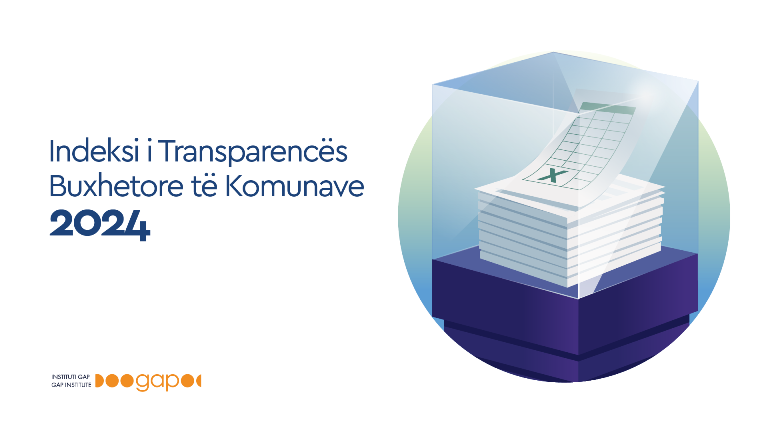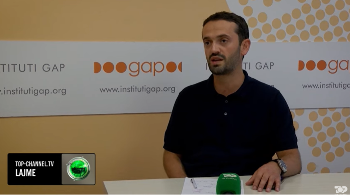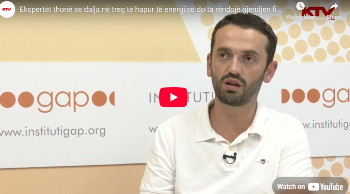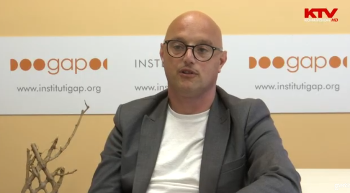GAP Institute launched the report "Economic payoffs of energy efficiency in Kosovo"
26/07/2023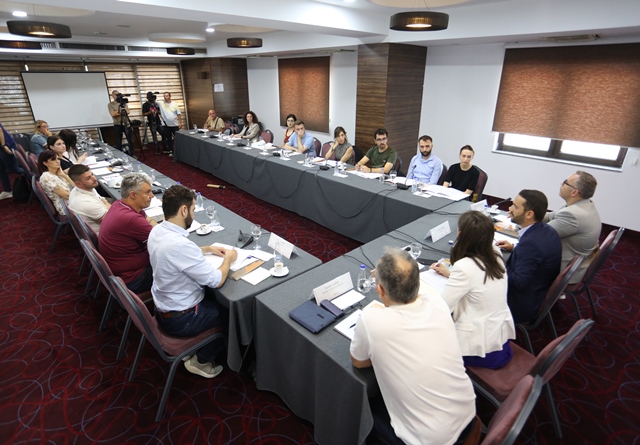
Today, GAP Institute organized a roundtable discussion where it presented the findings of the new report "Economic payoffs of energy efficiency in Kosovo."
Blendi Hasaj, Executive Director of GAP Institute, presented the reports findings, emphasizing that Kosovo has the highest energy intensity in Europe, with the residential sector being the largest energy consumer; hence with the highest energy saving potential. From 2016 to 2022, several government projects, including the Millennium Challenge Corporation project were implemented in Kosovo, he mentioned, which resulted in savings of around 29.61 ktoe or approximately 344.36 GWh. However, these projects, especially those of the government, have primarily focused on the public sector and, to a lesser extent, the residential and industrial sectors.
The National Energy Strategy 2022-2031 has defined an ambitious goal of cumulative savings of 283 ktoe by 2031. According to Hasaj, despite defining many strategic and legislative documents, it is the lack of proper implementation and of supportive mechanisms that has prolongated the process of investment in the energy efficiency (EE) in Kosovo. GAP recommends that the Government of Kosovo should ensure a continuous flow of funding in the Energy Efficiency Fund, expand the scope of the Fund to support households, the private sector and the public sector in the implementation of energy efficiency measures, establish an Energy Service Companies (ESCOS) market, expand the support of the Credit Guarantee Fund to the private sector for investments on energy efficiency projects, and develop complementary strategies promoting energy efficiency in the transportation and industrial sectors.
Artane Rizvanolli, Minister of the Ministry of Economy, emphasized that energy efficiency is a priority for the Government of Kosovo. She mentioned that in the past two years, significant work has been done in public sector investments through the Energy Efficiency Fund, which has been re-functionalized to implement various projects. In 2023, the Government, in collaboration with the Fund, plans to execute a total of 40 million euros as investments in energy efficiency, covering also the residential sector, by subsidizing thermal solar systems, etc. Minister Rizvanolli also talked about the last’s year scheme for efficient equipment worth around 6 million euros, stressing how nearly 10,000 families benefited from it, the lessons learned from it and the impact it had on raising public awareness. Additionally, she mentioned how for the first time, they plan to introduce a scheme to support small and medium-sized businesses. The measures are expected to be implemented in the coming month.
Naser Sahiti, professor at the Faculty of Mechanical Engineering, highlighted that raising public awareness about the importance of energy efficiency remains a challenge that requires more effort. Special attention should be given to municipal energy offices and municipal officials to ensure access to accurate data for better analysis of real impact. The University of Prishtina offers training for energy auditors, he mentioned, but due to the new Law on salaries, there is uncertainty regarding compensation for trainers at the Energy and Sustainability Center; which has temporarily stopped its services. Mr. Sahiti requested the intervention of the Minister to address this issue in a discussion with the Ministry of Finance, Labor, and Transfers, and the University of Prishtinas Rectorate.
Kreshnik Muhaxheri, Advisor at the Kosovo Energy Efficiency Fund, spoke about the Funds role and the latest projects being implemented, particularly focusing on improving energy efficiency in residential buildings for categories that receive social assistance. They plan to launch a new application this year, he mentioned, where citizens can get information and apply for the Funds supportive schemes related to energy efficiency investments.
The roundtable included representatives from local institutions, the German Economic Association, civil society, stakeholders, and the media.
To read the full report click here.








